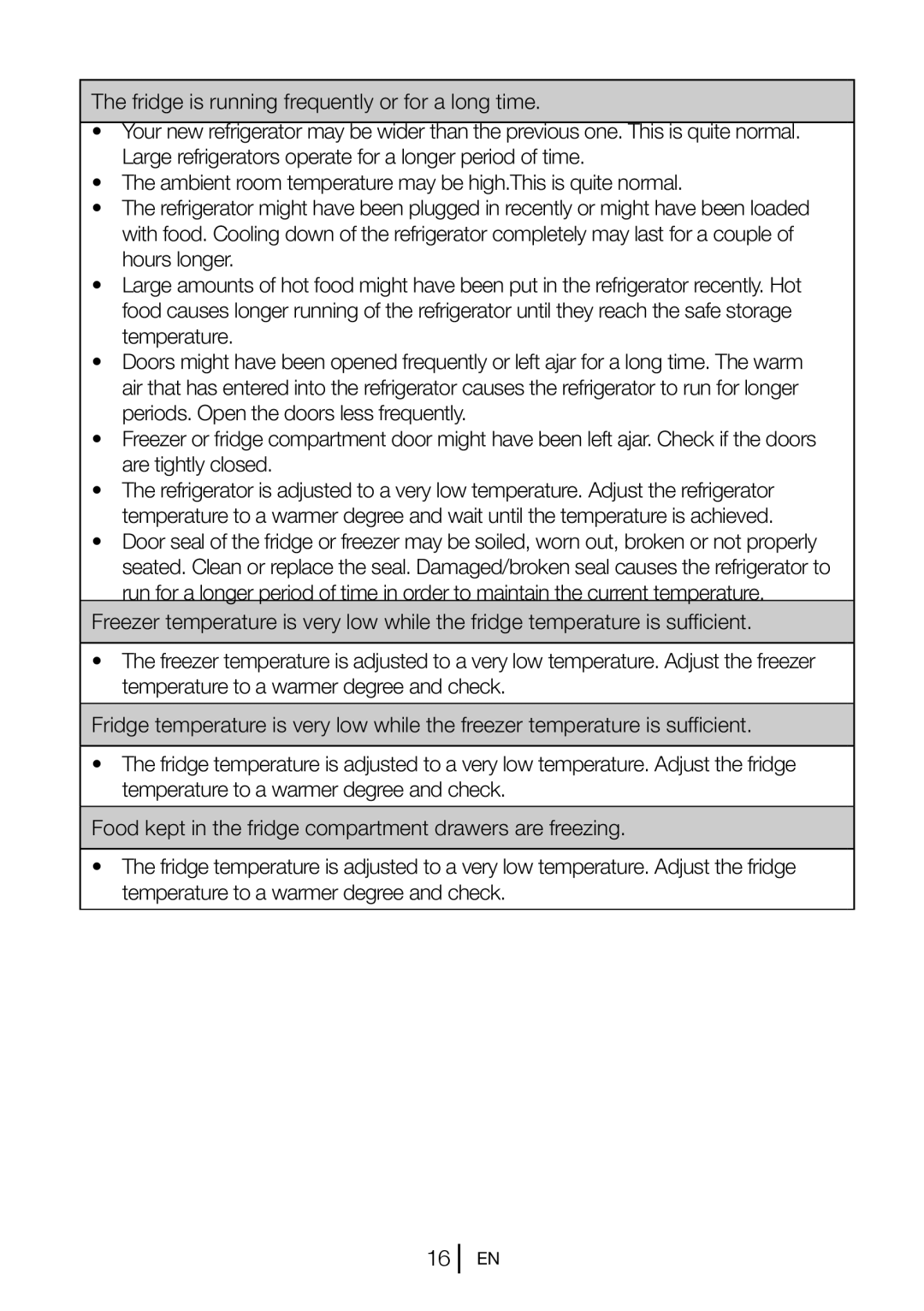
The fridge is running frequently or for a long time.
•Your new refrigerator may be wider than the previous one. This is quite normal. Large refrigerators operate for a longer period of time.
•The ambient room temperature may be high.This is quite normal.
•The refrigerator might have been plugged in recently or might have been loaded with food. Cooling down of the refrigerator completely may last for a couple of hours longer.
•Large amounts of hot food might have been put in the refrigerator recently. Hot food causes longer running of the refrigerator until they reach the safe storage temperature.
•Doors might have been opened frequently or left ajar for a long time. The warm air that has entered into the refrigerator causes the refrigerator to run for longer periods. Open the doors less frequently.
•Freezer or fridge compartment door might have been left ajar. Check if the doors are tightly closed.
•The refrigerator is adjusted to a very low temperature. Adjust the refrigerator temperature to a warmer degree and wait until the temperature is achieved.
•Door seal of the fridge or freezer may be soiled, worn out, broken or not properly seated. Clean or replace the seal. Damaged/broken seal causes the refrigerator to run for a longer period of time in order to maintain the current temperature.
Freezer temperature is very low while the fridge temperature is sufficient.
•The freezer temperature is adjusted to a very low temperature. Adjust the freezer temperature to a warmer degree and check.
Fridge temperature is very low while the freezer temperature is sufficient.
•The fridge temperature is adjusted to a very low temperature. Adjust the fridge temperature to a warmer degree and check.
Food kept in the fridge compartment drawers are freezing.
•The fridge temperature is adjusted to a very low temperature. Adjust the fridge temperature to a warmer degree and check.
16
EN
